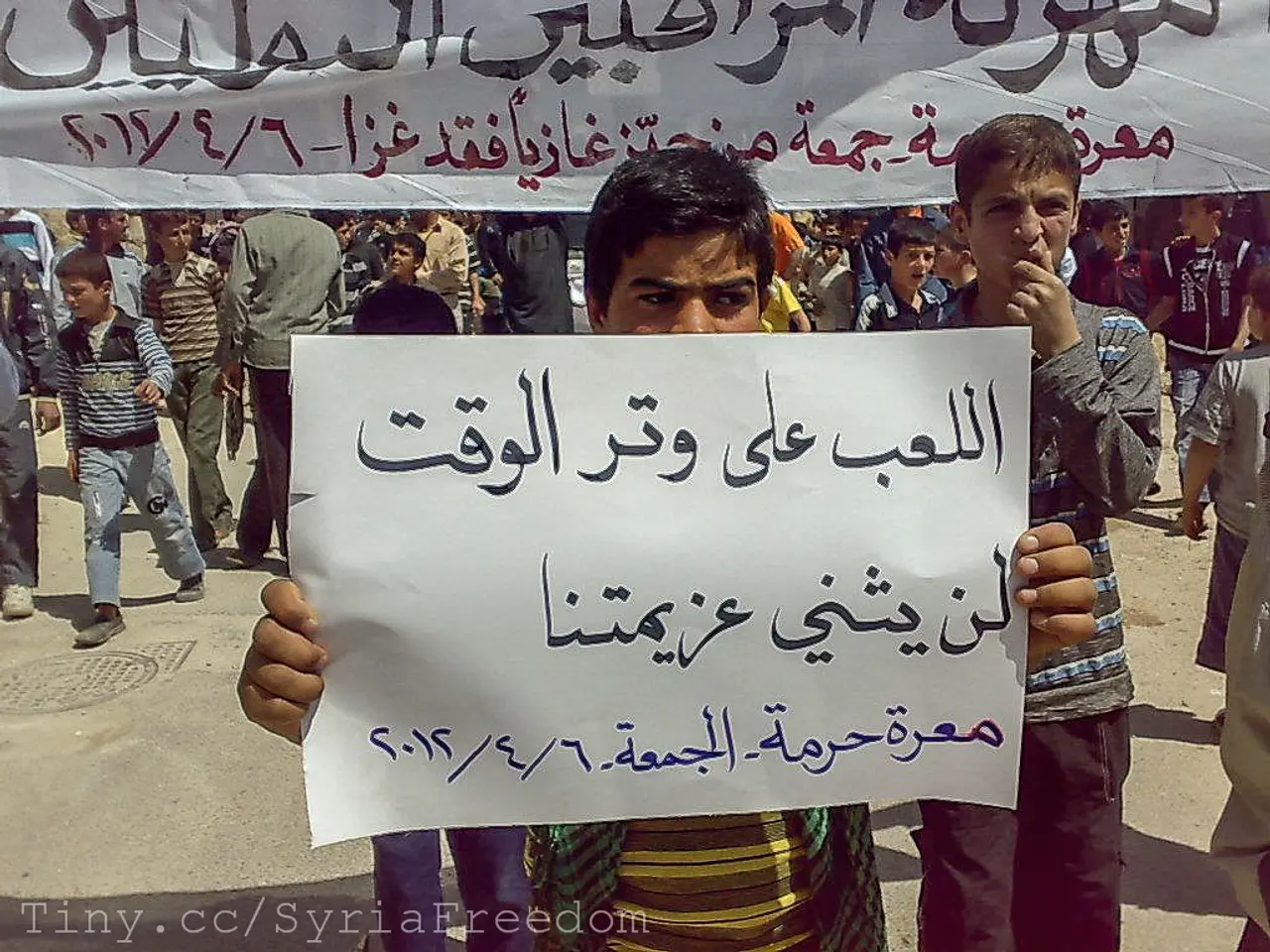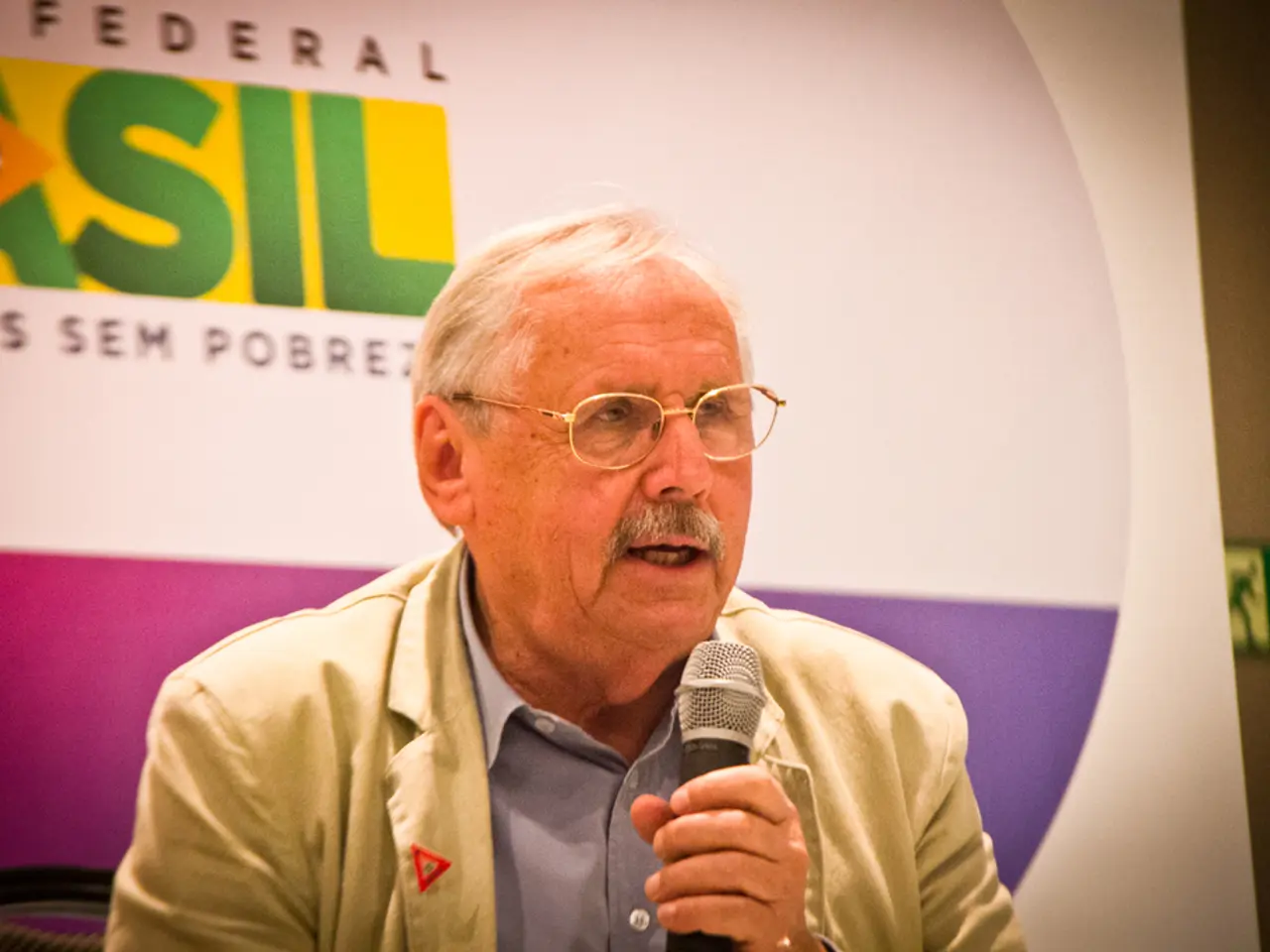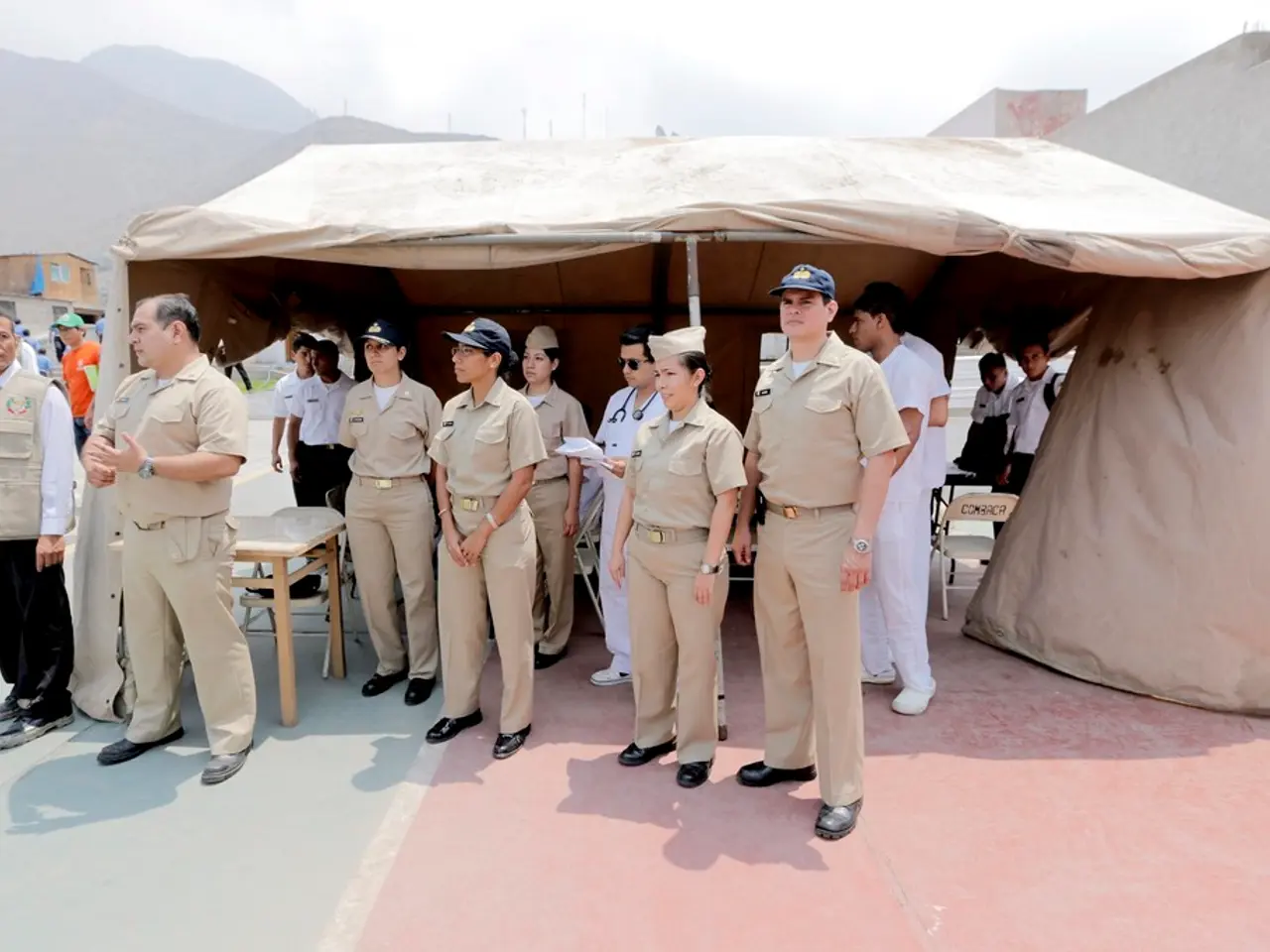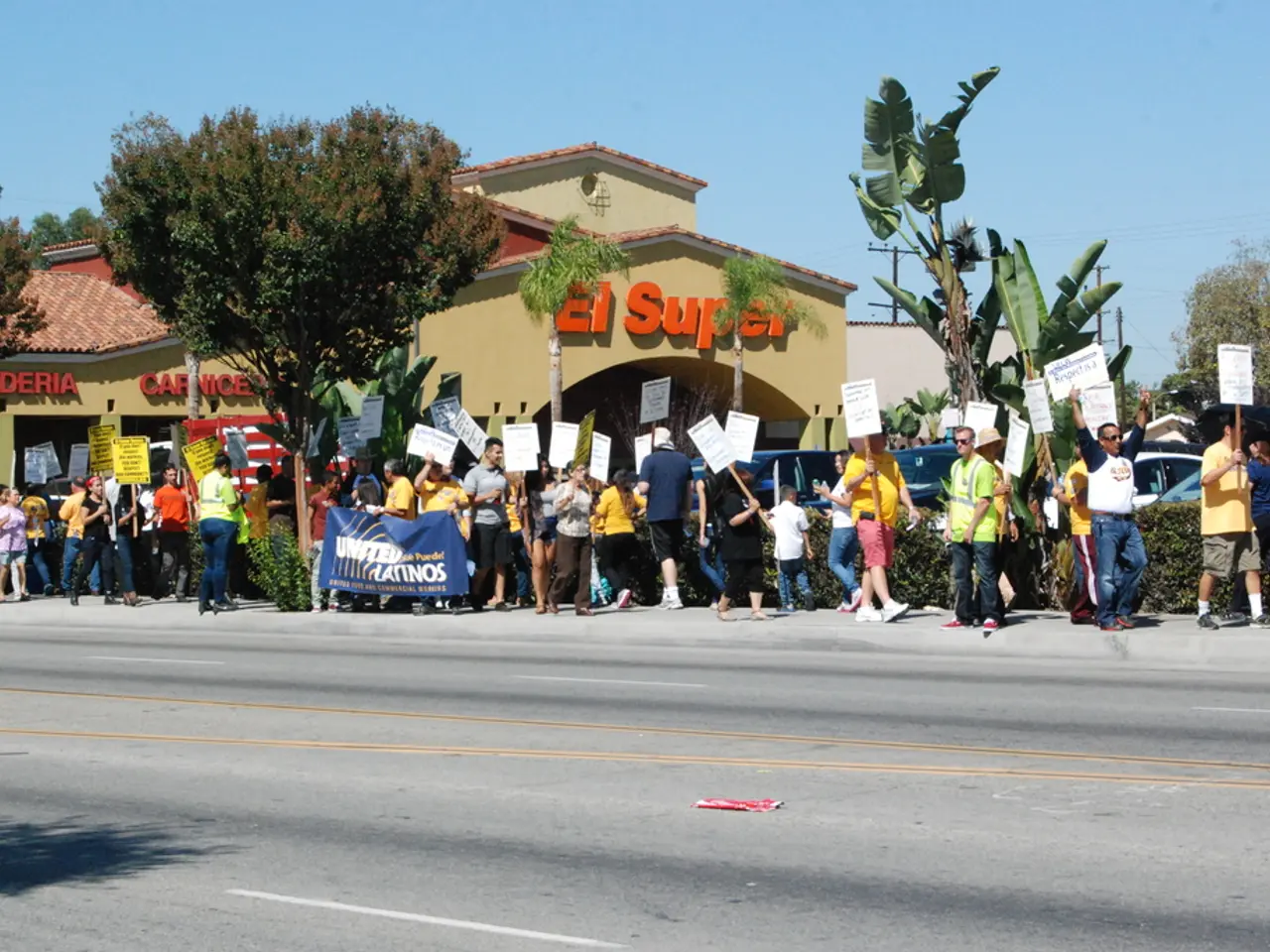Impose Additional 10% Tax on Nations Supporting BRICS Alliance, Warns Trump
In a significant gathering of global leaders, the BRICS summit took place in Brazil over the weekend, with representatives from Brazil, Russia, India, China, and South Africa, along with additional members such as Egypt, Ethiopia, Indonesia, Iran, and the United Arab Emirates, convening to discuss multilateral diplomacy amid violent conflicts and trade wars.
The summit, which was held in Brazil, saw the leaders of the BRICS group issuing a joint statement expressing concerns about attacks against Iran's "civilian infrastructure and peaceful nuclear facilities," Israeli attacks on Gaza, and a "terrorist attack" in India-administered Kashmir. The leaders also called for reforming global institutions such as the United Nations Security Council and the International Monetary Fund (IMF).
One of the key topics of discussion at the summit was the opposition of the BRICS nations to what U.S. President Donald Trump referred to as "anti-American policies." Trump's comments primarily concern unilateral tariffs and trade measures that BRICS nations oppose. Trump threatened to impose an additional 10% tariff on countries "aligning themselves with the Anti-American policies of BRICS," though he did not elaborate specifically on what these policies entail.
According to the BRICS statement issued shortly before Trump's announcement, the bloc—comprising the aforementioned nations—expressed serious concerns about the rise of unilateral tariff and non-tariff measures that distort trade. They viewed these measures as inconsistent with World Trade Organization (WTO) rules and detrimental especially to developing nations in the Global South. Thus, the "anti-American policies" can be understood as BRICS' opposition to the unilateral imposition of tariffs and other trade barriers, policies which the group views as protectionist and damaging global trade. Trump's retaliatory tariff threat targets those countries supporting or adopting this BRICS stance against U.S. trade measures.
Brazil's President Luiz Inacio Lula da Silva drew a parallel between the BRICS and the Cold War's Non-Aligned Movement, a group of developing nations that resisted joining either side of a polarized global order. Lula warned of rising protectionism in his remarks to business leaders.
In a separate statement, the leaders called for protections against unauthorized use of AI to avoid excessive data collection and allow mechanisms for fair payment. The leaders also backed plans to pilot a BRICS Multilateral Guarantees initiative within the group's New Development Bank to lower financing costs and boost investment in member states.
China and the UAE signaled plans to invest in a proposed Tropical Forests Forever Facility in discussions with Brazilian Finance Minister Fernando Haddad in Rio. The BRICS group also voiced its support for Ethiopia and Iran to join the World Trade Organization (WTO).
Indian Prime Minister Narendra Modi and South African President Cyril Ramaphosa were present at the summit, while Chinese President Xi Jinping sent his premier to the summit instead of attending in person. Brazil, which hosts the United Nations climate summit in November, highlighted its efforts in tackling climate change, while the U.S. has slowed down on climate initiatives.
The BRICS summit in Brazil aspires to speak for developing nations across the Global South, a sentiment underscored by the joint statement warning that the rise in tariffs threatens global trade. Indonesia's senior economic minister, Airlangga Hartarto, is in Brazil for the BRICS summit and is scheduled to go to the U.S. on Monday to oversee tariff talks.
U.S. President Donald Trump has announced he will impose an additional 10% tariff on any country aligning itself with the "Anti-American policies" of the BRICS group, a move that could escalate tensions in complex trade relationships between the U.S. and major BRICS members like China and India. Trump did not clarify what he meant by "anti-American policies" in his post about the tariffs.
[1] Reuters, "BRICS nations oppose unilateral tariffs and trade barriers, express concerns about global trade," 13 June 2023. [2] Bloomberg, "BRICS leaders call for reform of global institutions, warn against trade wars," 13 June 2023.
- The BRICS leaders, convened in Brazil over the weekend, expressed concerns about attacks against Iran's civilian infrastructure and peaceful nuclear facilities, Israeli attacks on Gaza, and a terrorist attack in India-administered Kashmir, and called for reforms in global institutions.
- In their joint statement, the BRICS nations opposed the rising unilateral tariffs and trade barriers, viewing them as inconsistent with World Trade Organization rules and especially harmful to developing nations in the Global South.
- Brazil's President Luiz Inacio Lula da Silva drew a parallel between the BRICS and the Non-Aligned Movement, emphasizing the rising protectionism as a concern in the current global political landscape.
- The U.S. President Donald Trump has announced an additional 10% tariff on countries aligning themselves with the "Anti-American policies" of the BRICS group, possibly escalating tensions and affecting trade relationships with major BRICS members such as China and India.





